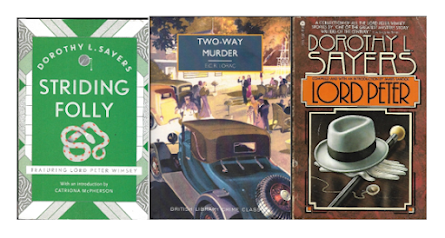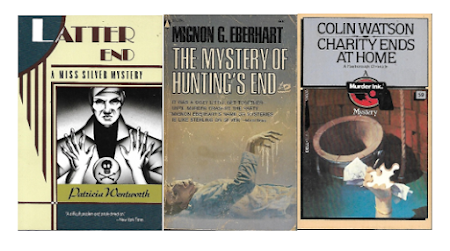Twelve Drummers Drumming (2021). C. C. Benison (Doug Whiteway)Father Tom Christmas (who prefers vicar or just plain Tom) comes to Thornford Regis looking for peace and quiet for himself and his daughter. He's escaping London where his wife was brutally murdered in their church by an unknown assailant. He has come to replace the Reverend Peter Kinsey, the village's previous vicar who had vanished into thin air not long before. Tom expects life in the small English village to be far less complicated and much safer. But as preparations are made for the annual May Fayre festivities, a young woman is found bludgeoned to death and stuffed inside the largest of the Japanese drums that were scheduled to be part of the entertainment.
Sybella Parry had led a wild life in London with her mother (a celebrity of sorts) and her father, after gaining custody, had brought her to the village where he lived with his second wife in an effort to help her straighten out her life. But the villagers noticed that Sybella seemed sly and like she knew everybody's secrets...and just maybe might do something about them. Did someone decide to do away with her before she could? Or is it significant that she and Mitsuko Drewe look extraordinarily similar from behind? It seems that it might be when one of Mrs. Drewe's famous quilts--based on pictures of village life--is stolen. It's a quilt that showed a picture of the cemetery the very night that the previous vicar disappeared. Was there a clue in the quilt? And did someone want to get rid of both the quilt and its creator (missing the mark in the second case)? Father Christmas has parishioners confessing to him right and left and he will face a moral dilemma or two as he decides what he can share with the authorities. Will he be able to help see that justice is done?
So, I have a few problems with this. First, the style of writing is very difficult for my to like. Benison takes Tom Christmas (and us) into scenes, cuts them off to take a look at another scene, and then has Tom doing these flashback moments to tell us what happened in the rest of the scene we left. So--what we get is a book that is a good 25-50% flashback telling. One of the first rules of writing is show--don't tell. Why on earth could we not just write the complete scene and let the readers see for themselves what happened rather than giving us half of it through Tom's memory of the moment?
Second, like many others, I originally picked this up thinking there would be a holiday theme. After all, we have Father Christmas (and it's pitched as a "Father Christmas mystery) AND we have a title and cover straight out of an incredibly well-known Christmas song. If we just wanted the title to match the vicar's name, then fine. But those drummers look like they're out of the Nutcracker and the actual drummers in the story are playing Japanese instruments. Seriously?
~~~~~~~~~~~~~~~~~~~~~~
Slight spoiler ahead:
Third, I'm not a fan of the dangling mysteries we've got going on. Especially since it looks like Benison abandoned this series after the third installment, so it's unlikely that they're ever resolved. We've got the murder of Tom's wife that was never solved. And then we have the mystery surrounding his verger's involvement in a previous murder case (totally unrelated to the story here) and the fact that he's disappeared. I'd be willing to bet money that neither of those mysteries are cleared up in the next books--especially when I look at the synopsis for each one. Very unsatisfying.
~~~~~~~~~~~~~~~~~~~~~~
On the plus side, I do like Tom Christmas and his housekeeper, Madrun Prowse. Madrun's letters to her ailing mum are probably the best part of the book. If Tom and Madrun had teamed up to be actual amateur detectives and Benison had ditched all of the "flashback" internal musings this would have been a much better mystery. ★★
First line: Dear Mum, When I sat down to write this morning's letter, I couldn't help but think about that May Fayre 30 years ago, when I moved back to Thornford R from London, you all dressed up as always in that red shawl Dad found that time at Newton Abbot market and your pink brocade turban with Grannie's ruby broach stuck in.
Last line: There's a mystery there, for sure!
*********************
Deaths = 6 (one struck by lightning; one stabbed; two hit on head; two train accident)












.jpg)
.jpg)
.jpg)




















.jpg)
.jpg)























